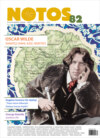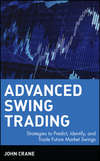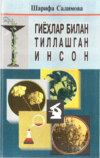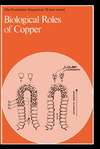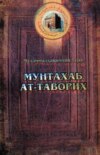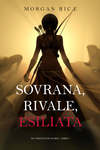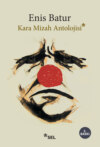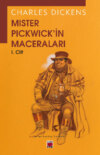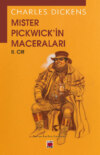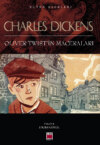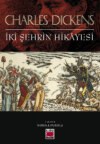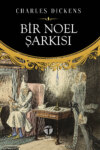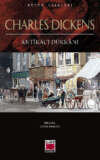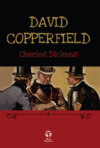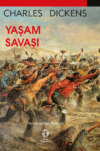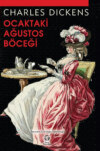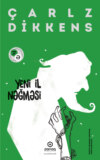Kitabı oku: «Oliver Twist, Illustrated; or, The Parish Boy's Progress», sayfa 9
CHAPTER XV – SHOWING HOW VERY FOND OF OLIVER TWIST, THE MERRY OLD JEW AND MISS NANCY WERE
In the obscure parlour of a low public-house, in the filthiest part of Little Saffron Hill; a dark and gloomy den, where a flaring gas-light burnt all day in the winter-time; and where no ray of sun ever shone in the summer: there sat, brooding over a little pewter measure and a small glass, strongly impregnated with the smell of liquor, a man in a velveteen coat, drab shorts, half-boots and stockings, whom even by that dim light no experienced agent of the police would have hesitated to recognise as Mr. William Sikes. At his feet, sat a white-coated, red-eyed dog; who occupied himself, alternately, in winking at his master with both eyes at the same time; and in licking a large, fresh cut on one side of his mouth, which appeared to be the result of some recent conflict.
‘Keep quiet, you warmint! Keep quiet!’ said Mr. Sikes, suddenly breaking silence. Whether his meditations were so intense as to be disturbed by the dog’s winking, or whether his feelings were so wrought upon by his reflections that they required all the relief derivable from kicking an unoffending animal to allay them, is matter for argument and consideration. Whatever was the cause, the effect was a kick and a curse, bestowed upon the dog simultaneously.
Dogs are not generally apt to revenge injuries inflicted upon them by their masters; but Mr. Sikes’s dog, having faults of temper in common with his owner, and labouring, perhaps, at this moment, under a powerful sense of injury, made no more ado but at once fixed his teeth in one of the half-boots. Having given in a hearty shake, he retired, growling, under a form; just escaping the pewter measure which Mr. Sikes levelled at his head.
‘You would, would you?’ said Sikes, seizing the poker in one hand, and deliberately opening with the other a large clasp-knife, which he drew from his pocket. ‘Come here, you born devil! Come here! D’ye hear?’
The dog no doubt heard; because Mr. Sikes spoke in the very harshest key of a very harsh voice; but, appearing to entertain some unaccountable objection to having his throat cut, he remained where he was, and growled more fiercely than before: at the same time grasping the end of the poker between his teeth, and biting at it like a wild beast.
This resistance only infuriated Mr. Sikes the more; who, dropping on his knees, began to assail the animal most furiously. The dog jumped from right to left, and from left to right; snapping, growling, and barking; the man thrust and swore, and struck and blasphemed; and the struggle was reaching a most critical point for one or other; when, the door suddenly opening, the dog darted out: leaving Bill Sikes with the poker and the clasp-knife in his hands.
There must always be two parties to a quarrel, says the old adage. Mr. Sikes, being disappointed of the dog’s participation, at once transferred his share in the quarrel to the new comer.
‘What the devil do you come in between me and my dog for?’ said Sikes, with a fierce gesture.
‘I didn’t know, my dear, I didn’t know,’ replied Fagin, humbly; for the Jew was the new comer.
‘Didn’t know, you white-livered thief!’ growled Sikes. ‘Couldn’t you hear the noise?’
‘Not a sound of it, as I’m a living man, Bill,’ replied the Jew.
‘Oh no! You hear nothing, you don’t,’ retorted Sikes with a fierce sneer. ‘Sneaking in and out, so as nobody hears how you come or go! I wish you had been the dog, Fagin, half a minute ago.’
‘Why?’ inquired the Jew with a forced smile.
‘Cause the government, as cares for the lives of such men as you, as haven’t half the pluck of curs, lets a man kill a dog how he likes,’ replied Sikes, shutting up the knife with a very expressive look; ‘that’s why.’
The Jew rubbed his hands; and, sitting down at the table, affected to laugh at the pleasantry of his friend. He was obviously very ill at ease, however.
‘Grin away,’ said Sikes, replacing the poker, and surveying him with savage contempt; ‘grin away. You’ll never have the laugh at me, though, unless it’s behind a nightcap. I’ve got the upper hand over you, Fagin; and, d – me, I’ll keep it. There! If I go, you go; so take care of me.’
‘Well, well, my dear,’ said the Jew, ‘I know all that; we – we – have a mutual interest, Bill, – a mutual interest.’
‘Humph,’ said Sikes, as if he thought the interest lay rather more on the Jew’s side than on his. ‘Well, what have you got to say to me?’
‘It’s all passed safe through the melting-pot,’ replied Fagin, ‘and this is your share. It’s rather more than it ought to be, my dear; but as I know you’ll do me a good turn another time, and – ’
‘Stow that gammon,’ interposed the robber, impatiently. ‘Where is it? Hand over!’
‘Yes, yes, Bill; give me time, give me time,’ replied the Jew, soothingly. ‘Here it is! All safe!’ As he spoke, he drew forth an old cotton handkerchief from his breast; and untying a large knot in one corner, produced a small brown-paper packet. Sikes, snatching it from him, hastily opened it; and proceeded to count the sovereigns it contained.
‘This is all, is it?’ inquired Sikes.
‘All,’ replied the Jew.
‘You haven’t opened the parcel and swallowed one or two as you come along, have you?’ inquired Sikes, suspiciously. ‘Don’t put on an injured look at the question; you’ve done it many a time. Jerk the tinkler.’
These words, in plain English, conveyed an injunction to ring the bell. It was answered by another Jew: younger than Fagin, but nearly as vile and repulsive in appearance.
Bill Sikes merely pointed to the empty measure. The Jew, perfectly understanding the hint, retired to fill it: previously exchanging a remarkable look with Fagin, who raised his eyes for an instant, as if in expectation of it, and shook his head in reply; so slightly that the action would have been almost imperceptible to an observant third person. It was lost upon Sikes, who was stooping at the moment to tie the boot-lace which the dog had torn. Possibly, if he had observed the brief interchange of signals, he might have thought that it boded no good to him.
‘Is anybody here, Barney?’ inquired Fagin; speaking, now that that Sikes was looking on, without raising his eyes from the ground.
‘Dot a shoul,’ replied Barney; whose words: whether they came from the heart or not: made their way through the nose.
‘Nobody?’ inquired Fagin, in a tone of surprise: which perhaps might mean that Barney was at liberty to tell the truth.
‘Dobody but Biss Dadsy,’ replied Barney.
‘Nancy!’ exclaimed Sikes. ‘Where? Strike me blind, if I don’t honour that ‘ere girl, for her native talents.’
‘She’s bid havid a plate of boiled beef id the bar,’ replied Barney.
‘Send her here,’ said Sikes, pouring out a glass of liquor. ‘Send her here.’
Barney looked timidly at Fagin, as if for permission; the Jew remaining silent, and not lifting his eyes from the ground, he retired; and presently returned, ushering in Nancy; who was decorated with the bonnet, apron, basket, and street-door key, complete.
‘You are on the scent, are you, Nancy?’ inquired Sikes, proffering the glass.
‘Yes, I am, Bill,’ replied the young lady, disposing of its contents; ‘and tired enough of it I am, too. The young brat’s been ill and confined to the crib; and – ’
‘Ah, Nancy, dear!’ said Fagin, looking up.
Now, whether a peculiar contraction of the Jew’s red eye-brows, and a half closing of his deeply-set eyes, warned Miss Nancy that she was disposed to be too communicative, is not a matter of much importance. The fact is all we need care for here; and the fact is, that she suddenly checked herself, and with several gracious smiles upon Mr. Sikes, turned the conversation to other matters. In about ten minutes’ time, Mr. Fagin was seized with a fit of coughing; upon which Nancy pulled her shawl over her shoulders, and declared it was time to go. Mr. Sikes, finding that he was walking a short part of her way himself, expressed his intention of accompanying her; they went away together, followed, at a little distant, by the dog, who slunk out of a back-yard as soon as his master was out of sight.
The Jew thrust his head out of the room door when Sikes had left it; looked after him as we walked up the dark passage; shook his clenched fist; muttered a deep curse; and then, with a horrible grin, reseated himself at the table; where he was soon deeply absorbed in the interesting pages of the Hue-and-Cry.
Meanwhile, Oliver Twist, little dreaming that he was within so very short a distance of the merry old gentleman, was on his way to the book-stall. When he got into Clerkenwell, he accidently turned down a by-street which was not exactly in his way; but not discovering his mistake until he had got half-way down it, and knowing it must lead in the right direction, he did not think it worth while to turn back; and so marched on, as quickly as he could, with the books under his arm.
He was walking along, thinking how happy and contented he ought to feel; and how much he would give for only one look at poor little Dick, who, starved and beaten, might be weeping bitterly at that very moment; when he was startled by a young woman screaming out very loud. ‘Oh, my dear brother!’ And he had hardly looked up, to see what the matter was, when he was stopped by having a pair of arms thrown tight round his neck.
‘Don’t,’ cried Oliver, struggling. ‘Let go of me. Who is it? What are you stopping me for?’
The only reply to this, was a great number of loud lamentations from the young woman who had embraced him; and who had a little basket and a street-door key in her hand.
‘Oh my gracious!’ said the young woman, ‘I have found him! Oh! Oliver! Oliver! Oh you naughty boy, to make me suffer such distress on your account! Come home, dear, come. Oh, I’ve found him. Thank gracious goodness heavins, I’ve found him!’ With these incoherent exclamations, the young woman burst into another fit of crying, and got so dreadfully hysterical, that a couple of women who came up at the moment asked a butcher’s boy with a shiny head of hair anointed with suet, who was also looking on, whether he didn’t think he had better run for the doctor. To which, the butcher’s boy: who appeared of a lounging, not to say indolent disposition: replied, that he thought not.
‘Oh, no, no, never mind,’ said the young woman, grasping Oliver’s hand; ‘I’m better now. Come home directly, you cruel boy! Come!’
‘Oh, ma’am,’ replied the young woman, ‘he ran away, near a month ago, from his parents, who are hard-working and respectable people; and went and joined a set of thieves and bad characters; and almost broke his mother’s heart.’
‘Young wretch!’ said one woman.
‘Go home, do, you little brute,’ said the other.
‘I am not,’ replied Oliver, greatly alarmed. ‘I don’t know her. I haven’t any sister, or father and mother either. I’m an orphan; I live at Pentonville.’
‘Only hear him, how he braves it out!’ cried the young woman.
‘Why, it’s Nancy!’ exclaimed Oliver; who now saw her face for the first time; and started back, in irrepressible astonishment.
‘You see he knows me!’ cried Nancy, appealing to the bystanders. ‘He can’t help himself. Make him come home, there’s good people, or he’ll kill his dear mother and father, and break my heart!’
‘What the devil’s this?’ said a man, bursting out of a beer-shop, with a white dog at his heels; ‘young Oliver! Come home to your poor mother, you young dog! Come home directly.’
‘I don’t belong to them. I don’t know them. Help! help!’ cried Oliver, struggling in the man’s powerful grasp.
‘Help!’ repeated the man. ‘Yes; I’ll help you, you young rascal!
What books are these? You’ve been a stealing ‘em, have you? Give ‘em here.’ With these words, the man tore the volumes from his grasp, and struck him on the head.
‘That’s right!’ cried a looker-on, from a garret-window. ‘That’s the only way of bringing him to his senses!’
‘To be sure!’ cried a sleepy-faced carpenter, casting an approving look at the garret-window.
‘It’ll do him good!’ said the two women.
‘And he shall have it, too!’ rejoined the man, administering another blow, and seizing Oliver by the collar. ‘Come on, you young villain! Here, Bull’s-eye, mind him, boy! Mind him!’
Weak with recent illness; stupified by the blows and the suddenness of the attack; terrified by the fierce growling of the dog, and the brutality of the man; overpowered by the conviction of the bystanders that he really was the hardened little wretch he was described to be; what could one poor child do! Darkness had set in; it was a low neighborhood; no help was near; resistance was useless. In another moment he was dragged into a labyrinth of dark narrow courts, and was forced along them at a pace which rendered the few cries he dared to give utterance to, unintelligible. It was of little moment, indeed, whether they were intelligible or no; for there was nobody to care for them, had they been ever so plain.
The gas-lamps were lighted; Mrs. Bedwin was waiting anxiously at the open door; the servant had run up the street twenty times to see if there were any traces of Oliver; and still the two old gentlemen sat, perseveringly, in the dark parlour, with the watch between them.
CHAPTER XVI – RELATES WHAT BECAME OF OLIVER TWIST, AFTER HE HAD BEEN CLAIMED BY NANCY
The narrow streets and courts, at length, terminated in a large open space; scattered about which, were pens for beasts, and other indications of a cattle-market. Sikes slackened his pace when they reached this spot: the girl being quite unable to support any longer, the rapid rate at which they had hitherto walked. Turning to Oliver, he roughly commanded him to take hold of Nancy’s hand.
‘Do you hear?’ growled Sikes, as Oliver hesitated, and looked round.
They were in a dark corner, quite out of the track of passengers.
Oliver saw, but too plainly, that resistance would be of no avail. He held out his hand, which Nancy clasped tight in hers.
‘Give me the other,’ said Sikes, seizing Oliver’s unoccupied hand. ‘Here, Bull’s-Eye!’
The dog looked up, and growled.
‘See here, boy!’ said Sikes, putting his other hand to Oliver’s throat; ‘if he speaks ever so soft a word, hold him! D’ye mind!’
The dog growled again; and licking his lips, eyed Oliver as if he were anxious to attach himself to his windpipe without delay.
‘He’s as willing as a Christian, strike me blind if he isn’t!’ said Sikes, regarding the animal with a kind of grim and ferocious approval. ‘Now, you know what you’ve got to expect, master, so call away as quick as you like; the dog will soon stop that game. Get on, young’un!’
Bull’s-eye wagged his tail in acknowledgment of this unusually endearing form of speech; and, giving vent to another admonitory growl for the benefit of Oliver, led the way onward.
It was Smithfield that they were crossing, although it might have been Grosvenor Square, for anything Oliver knew to the contrary. The night was dark and foggy. The lights in the shops could scarecely struggle through the heavy mist, which thickened every moment and shrouded the streets and houses in gloom; rendering the strange place still stranger in Oliver’s eyes; and making his uncertainty the more dismal and depressing.
They had hurried on a few paces, when a deep church-bell struck the hour. With its first stroke, his two conductors stopped, and turned their heads in the direction whence the sound proceeded.
‘Eight o’ clock, Bill,’ said Nancy, when the bell ceased.
‘What’s the good of telling me that; I can hear it, can’t I!’ replied Sikes.
‘I wonder whether they can hear it,’ said Nancy.
‘Of course they can,’ replied Sikes. ‘It was Bartlemy time when I was shopped; and there warn’t a penny trumpet in the fair, as I couldn’t hear the squeaking on. Arter I was locked up for the night, the row and din outside made the thundering old jail so silent, that I could almost have beat my brains out against the iron plates of the door.’
‘Poor fellow!’ said Nancy, who still had her face turned towards the quarter in which the bell had sounded. ‘Oh, Bill, such fine young chaps as them!’
‘Yes; that’s all you women think of,’ answered Sikes. ‘Fine young chaps! Well, they’re as good as dead, so it don’t much matter.’
With this consolation, Mr. Sikes appeared to repress a rising tendency to jealousy, and, clasping Oliver’s wrist more firmly, told him to step out again.
‘Wait a minute!’ said the girl: ‘I wouldn’t hurry by, if it was you that was coming out to be hung, the next time eight o’clock struck, Bill. I’d walk round and round the place till I dropped, if the snow was on the ground, and I hadn’t a shawl to cover me.’
‘And what good would that do?’ inquired the unsentimental Mr. Sikes. ‘Unless you could pitch over a file and twenty yards of good stout rope, you might as well be walking fifty mile off, or not walking at all, for all the good it would do me. Come on, and don’t stand preaching there.’
The girl burst into a laugh; drew her shawl more closely round her; and they walked away. But Oliver felt her hand tremble, and, looking up in her face as they passed a gas-lamp, saw that it had turned a deadly white.
They walked on, by little-frequented and dirty ways, for a full half-hour: meeting very few people, and those appearing from their looks to hold much the same position in society as Mr. Sikes himself. At length they turned into a very filthy narrow street, nearly full of old-clothes shops; the dog running forward, as if conscious that there was no further occasion for his keeping on guard, stopped before the door of a shop that was closed and apparently untenanted; the house was in a ruinous condition, and on the door was nailed a board, intimating that it was to let: which looked as if it had hung there for many years.
‘All right,’ cried Sikes, glancing cautiously about.
Nancy stooped below the shutters, and Oliver heard the sound of a bell. They crossed to the opposite side of the street, and stood for a few moments under a lamp. A noise, as if a sash window were gently raised, was heard; and soon afterwards the door softly opened. Mr. Sikes then seized the terrified boy by the collar with very little ceremony; and all three were quickly inside the house.
The passage was perfectly dark. They waited, while the person who had let them in, chained and barred the door.
‘Anybody here?’ inquired Sikes.
‘No,’ replied a voice, which Oliver thought he had heard before.
‘Is the old ‘un here?’ asked the robber.
‘Yes,’ replied the voice, ‘and precious down in the mouth he has been. Won’t he be glad to see you? Oh, no!’
The style of this reply, as well as the voice which delivered it, seemed familiar to Oliver’s ears: but it was impossible to distinguish even the form of the speaker in the darkness.
‘Let’s have a glim,’ said Sikes, ‘or we shall go breaking our necks, or treading on the dog. Look after your legs if you do!’
‘Stand still a moment, and I’ll get you one,’ replied the voice. The receding footsteps of the speaker were heard; and, in another minute, the form of Mr. John Dawkins, otherwise the Artful Dodger, appeared. He bore in his right hand a tallow candle stuck in the end of a cleft stick.
The young gentleman did not stop to bestow any other mark of recognition upon Oliver than a humourous grin; but, turning away, beckoned the visitors to follow him down a flight of stairs. They crossed an empty kitchen; and, opening the door of a low earthy-smelling room, which seemed to have been built in a small back-yard, were received with a shout of laughter.
‘Oh, my wig, my wig!’ cried Master Charles Bates, from whose lungs the laughter had proceeded: ‘here he is! oh, cry, here he is! Oh, Fagin, look at him! Fagin, do look at him! I can’t bear it; it is such a jolly game, I cant’ bear it. Hold me, somebody, while I laugh it out.’
With this irrepressible ebullition of mirth, Master Bates laid himself flat on the floor: and kicked convulsively for five minutes, in an ectasy of facetious joy. Then jumping to his feet, he snatched the cleft stick from the Dodger; and, advancing to Oliver, viewed him round and round; while the Jew, taking off his nightcap, made a great number of low bows to the bewildered boy. The Artful, meantime, who was of a rather saturnine disposition, and seldom gave way to merriment when it interfered with business, rifled Oliver’s pockets with steady assiduity.
‘Look at his togs, Fagin!’ said Charley, putting the light so close to his new jacket as nearly to set him on fire. ‘Look at his togs! Superfine cloth, and the heavy swell cut! Oh, my eye, what a game! And his books, too! Nothing but a gentleman, Fagin!’
‘Delighted to see you looking so well, my dear,’ said the Jew, bowing with mock humility. ‘The Artful shall give you another suit, my dear, for fear you should spoil that Sunday one. Why didn’t you write, my dear, and say you were coming? We’d have got something warm for supper.’
At his, Master Bates roared again: so loud, that Fagin himself relaxed, and even the Dodger smiled; but as the Artful drew forth the five-pound note at that instant, it is doubtful whether the sally of the discovery awakened his merriment.
‘Hallo, what’s that?’ inquired Sikes, stepping forward as the Jew seized the note. ‘That’s mine, Fagin.’
‘No, no, my dear,’ said the Jew. ‘Mine, Bill, mine. You shall have the books.’
‘If that ain’t mine!’ said Bill Sikes, putting on his hat with a determined air; ‘mine and Nancy’s that is; I’ll take the boy back again.’
The Jew started. Oliver started too, though from a very different cause; for he hoped that the dispute might really end in his being taken back.
‘Come! Hand over, will you?’ said Sikes.
‘This is hardly fair, Bill; hardly fair, is it, Nancy?’ inquired the Jew.
‘Fair, or not fair,’ retorted Sikes, ‘hand over, I tell you! Do you think Nancy and me has got nothing else to do with our precious time but to spend it in scouting arter, and kidnapping, every young boy as gets grabbed through you? Give it here, you avaricious old skeleton, give it here!’
With this gentle remonstrance, Mr. Sikes plucked the note from between the Jew’s finger and thumb; and looking the old man coolly in the face, folded it up small, and tied it in his neckerchief.
‘That’s for our share of the trouble,’ said Sikes; ‘and not half enough, neither. You may keep the books, if you’re fond of reading. If you ain’t, sell ‘em.’
‘They’re very pretty,’ said Charley Bates: who, with sundry grimaces, had been affecting to read one of the volumes in question; ‘beautiful writing, isn’t is, Oliver?’ At sight of the dismayed look with which Oliver regarded his tormentors, Master Bates, who was blessed with a lively sense of the ludicrous, fell into another ectasy, more boisterous than the first.
‘They belong to the old gentleman,’ said Oliver, wringing his hands; ‘to the good, kind, old gentleman who took me into his house, and had me nursed, when I was near dying of the fever. Oh, pray send them back; send him back the books and money. Keep me here all my life long; but pray, pray send them back. He’ll think I stole them; the old lady: all of them who were so kind to me: will think I stole them. Oh, do have mercy upon me, and send them back!’
With these words, which were uttered with all the energy of passionate grief, Oliver fell upon his knees at the Jew’s feet; and beat his hands together, in perfect desperation.
‘The boy’s right,’ remarked Fagin, looking covertly round, and knitting his shaggy eyebrows into a hard knot. ‘You’re right, Oliver, you’re right; they will think you have stolen ‘em. Ha! ha!’ chuckled the Jew, rubbing his hands, ‘it couldn’t have happened better, if we had chosen our time!’
‘Of course it couldn’t,’ replied Sikes; ‘I know’d that, directly I see him coming through Clerkenwell, with the books under his arm. It’s all right enough. They’re soft-hearted psalm-singers, or they wouldn’t have taken him in at all; and they’ll ask no questions after him, fear they should be obliged to prosecute, and so get him lagged. He’s safe enough.’
Oliver had looked from one to the other, while these words were being spoken, as if he were bewildered, and could scarecely understand what passed; but when Bill Sikes concluded, he jumped suddenly to his feet, and tore wildly from the room: uttering shrieks for help, which made the bare old house echo to the roof.
‘Keep back the dog, Bill!’ cried Nancy, springing before the door, and closing it, as the Jew and his two pupils darted out in pursuit. ‘Keep back the dog; he’ll tear the boy to pieces.’
‘Serve him right!’ cried Sikes, struggling to disengage himself from the girl’s grasp. ‘Stand off from me, or I’ll split your head against the wall.’
‘I don’t care for that, Bill, I don’t care for that,’ screamed the girl, struggling violently with the man, ‘the child shan’t be torn down by the dog, unless you kill me first.’
‘Shan’t he!’ said Sikes, setting his teeth. ‘I’ll soon do that, if you don’t keep off.’
The housebreaker flung the girl from him to the further end of the room, just as the Jew and the two boys returned, dragging Oliver among them.
‘What’s the matter here!’ said Fagin, looking round.
‘The girl’s gone mad, I think,’ replied Sikes, savagely.
‘No, she hasn’t,’ said Nancy, pale and breathless from the scuffle; ‘no, she hasn’t, Fagin; don’t think it.’
‘Then keep quiet, will you?’ said the Jew, with a threatening look.
‘No, I won’t do that, neither,’ replied Nancy, speaking very loud. ‘Come! What do you think of that?’
Mr. Fagin was sufficiently well acquainted with the manners and customs of that particular species of humanity to which Nancy belonged, to feel tolerably certain that it would be rather unsafe to prolong any conversation with her, at present. With the view of diverting the attention of the company, he turned to Oliver.
‘So you wanted to get away, my dear, did you?’ said the Jew, taking up a jagged and knotted club which law in a corner of the fireplace; ‘eh?’
Oliver made no reply. But he watched the Jew’s motions, and breathed quickly.
‘Wanted to get assistance; called for the police; did you?’ sneered the Jew, catching the boy by the arm. ‘We’ll cure you of that, my young master.’
The Jew inflicted a smart blow on Oliver’s shoulders with the club; and was raising it for a second, when the girl, rushing forward, wrested it from his hand. She flung it into the fire, with a force that brought some of the glowing coals whirling out into the room.
‘I won’t stand by and see it done, Fagin,’ cried the girl. ‘You’ve got the boy, and what more would you have? – Let him be – let him be – or I shall put that mark on some of you, that will bring me to the gallows before my time.’
The girl stamped her foot violently on the floor as she vented this threat; and with her lips compressed, and her hands clenched, looked alternately at the Jew and the other robber: her face quite colourless from the passion of rage into which she had gradually worked herself.
‘Why, Nancy!’ said the Jew, in a soothing tone; after a pause, during which he and Mr. Sikes had stared at one another in a disconcerted manner; ‘you, – you’re more clever than ever to-night. Ha! ha! my dear, you are acting beautifully.’
‘Am I!’ said the girl. ‘Take care I don’t overdo it. You will be the worse for it, Fagin, if I do; and so I tell you in good time to keep clear of me.’
There is something about a roused woman: especially if she add to all her other strong passions, the fierce impulses of recklessness and despair; which few men like to provoke. The Jew saw that it would be hopeless to affect any further mistake regarding the reality of Miss Nancy’s rage; and, shrinking involuntarily back a few paces, cast a glance, half imploring and half cowardly, at Sikes: as if to hint that he was the fittest person to pursue the dialogue.
Mr. Sikes, thus mutely appealed to; and possibly feeling his personal pride and influence interested in the immediate reduction of Miss Nancy to reason; gave utterance to about a couple of score of curses and threats, the rapid production of which reflected great credit on the fertility of his invention. As they produced no visible effect on the object against whom they were discharged, however, he resorted to more tangible arguments.
‘What do you mean by this?’ said Sikes; backing the inquiry with a very common imprecation concerning the most beautiful of human features: which, if it were heard above, only once out of every fifty thousand times that it is uttered below, would render blindness as common a disorder as measles: ‘what do you mean by it? Burn my body! Do you know who you are, and what you are?’
‘Oh, yes, I know all about it,’ replied the girl, laughing hysterically; and shaking her head from side to side, with a poor assumption of indifference.
‘Well, then, keep quiet,’ rejoined Sikes, with a growl like that he was accustomed to use when addressing his dog, ‘or I’ll quiet you for a good long time to come.’
The girl laughed again: even less composedly than before; and, darting a hasty look at Sikes, turned her face aside, and bit her lip till the blood came.
‘You’re a nice one,’ added Sikes, as he surveyed her with a contemptuous air, ‘to take up the humane and gen – teel side! A pretty subject for the child, as you call him, to make a friend of!’
‘God Almighty help me, I am!’ cried the girl passionately; ‘and I wish I had been struck dead in the street, or had changed places with them we passed so near to-night, before I had lent a hand in bringing him here. He’s a thief, a liar, a devil, all that’s bad, from this night forth. Isn’t that enough for the old wretch, without blows?’
‘Come, come, Sikes,’ said the Jew appealing to him in a remonstratory tone, and motioning towards the boys, who were eagerly attentive to all that passed; ‘we must have civil words; civil words, Bill.’
‘Civil words!’ cried the girl, whose passion was frightful to see. ‘Civil words, you villain! Yes, you deserve ‘em from me. I thieved for you when I was a child not half as old as this!’ pointing to Oliver. ‘I have been in the same trade, and in the same service, for twelve years since. Don’t you know it? Speak out! Don’t you know it?’

